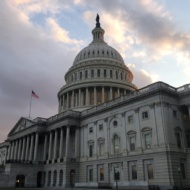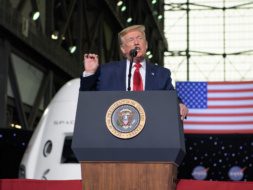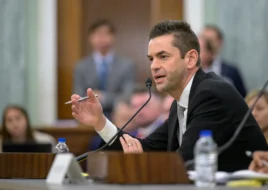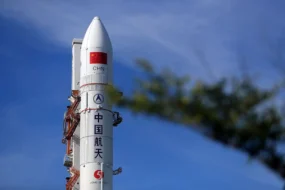The Transportation Department committed to taking a “very light touch approach” under the White House’s regulatory plan for novel space activities during a Senate hearing on Wednesday.
Senators asked Kelvin Coleman, the FAA’s associate administrator for commercial space transportation, how the agency planned to keep up with regulating crewed and transportation missions in orbit when launch licenses take such a long time. But Coleman said launch licenses require a lot of analysis of safety and trajectory to make sure the public stays safe—which won’t be required for in-orbit missions.
“The activities we’re talking about are significantly different for launch activities and re-entry activities that pose an entirely different risk exposure for the public,” he said at a hearing hosted by the Senate Commerce, Science and Transportation Committee. “We envision a very light touch approach.”
Some context: Coleman, alongside officials from NASA, Commerce, and DoD, defended the National Space Council’s legislative proposal for mission authorization, which was released last month after a year of consideration. The plan, which is facing pushback from industry, would split regulatory authorities between two agencies:
- The Transportation Department would regulate any human spaceflight missions (such as commercial space stations) and would also oversee transportation of items through space.
- The Commerce Department would oversee other novel missions, such as debris removal tech or satellite servicing.
Sen. J.D. Vance (R-OH) worried that too much overlap could mean some missions might require authorization from both agencies. But Coleman reassured him, “there is no situation in which both the Department of Transportation and the Department of Commerce will have joint oversight responsibilities for a single activity.”
Let’s not forget Starship: Though the hearing mainly focused on the White House’s proposal, Sen. Ted Cruz (R-TX) used it as an opportunity to prod the administration again to move faster to authorize Starship flights, the second of which was delayed by an environmental review since the launch pad had to be rebuilt.
“I’m not advocating for a wholesale repeal of our environmental laws or [the National Environmental Policy Act], I’m just arguing for them not to be applied in a dumbass way that slows down commercial space,” Cruz said.




